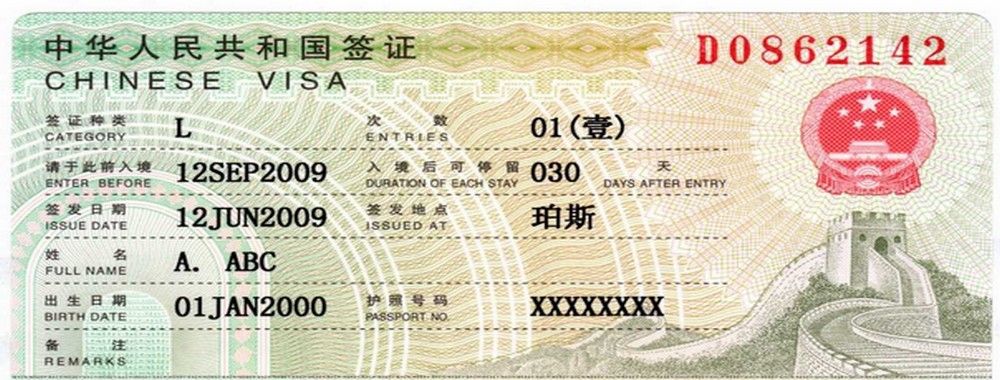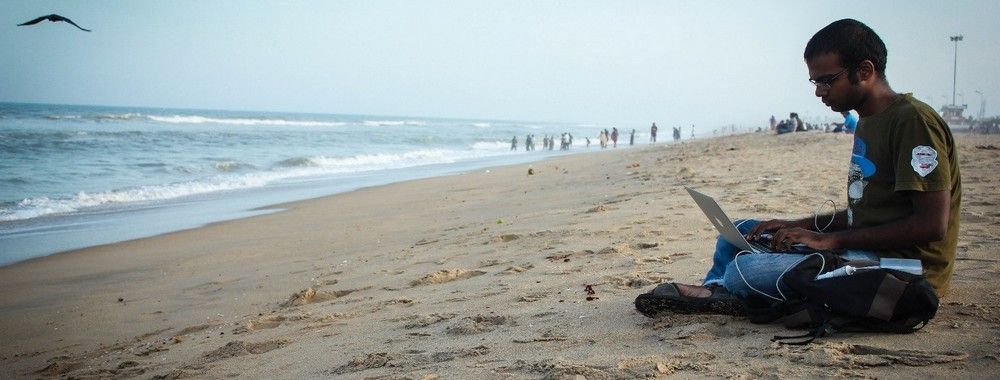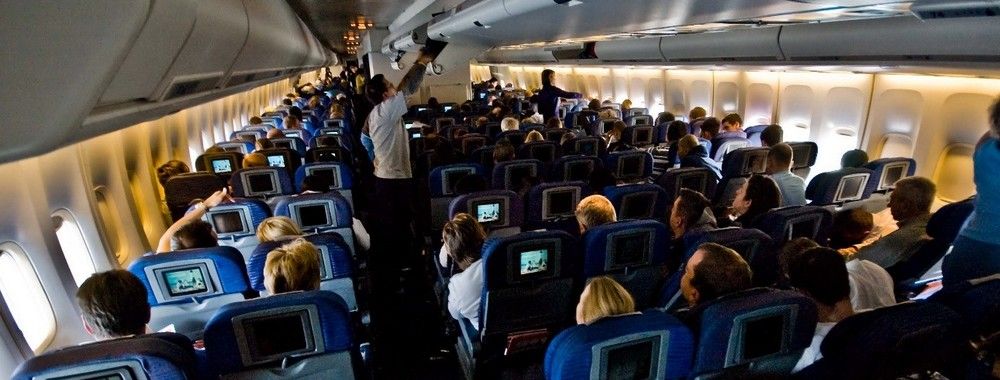The biggest hurdle of international digital nomad life is understanding visas and basic legal issues that may affect your living conditions and work life. There is no global rule for visas and legal issues, either; they vary from country to country and from applicant to applicant. That’s why it’s always important to research the country you intend to visit – and possibly neighbouring countries, too, if you intend to stay a while and have to do a visa run. While some of this might seem scary, most digital nomads lead fairly trouble-free and exciting lives. Here, you’ll learn the basic dos and don’ts of visas and legal issues for digital nomads.
Visas – General Info
A visa is a permission to stay in a country for a set period of time or even permanently. You may or may not need a visa to travel from one place to another.
For example, a citizen of the European Union may travel to any European Union country and may live and work in that country without a visa. Citizens from G-7 nations are given a visa waiver (for 30 days) when arriving in Thailand by air—and so on…
If you need a visa, the type of visa you may apply for and the duration of that visa will vary. You will normally need to apply for a visa at an embassy/consulate, although some countries will issue visas on arrival (though not always at all entry points to a country), and you may need to pay a fee for that visa.
Tourist Visa
Most digital nomads, when they need a visa, will travel on a tourist visa. This means that it may be illegal, technically, for the digital nomad to do any work in a country. In reality, in most countries, as long as the nomad is discreet and is not taking a job away from a local person—authorities will turn a blind eye to nomad work. However, it is possible if you are caught working on a tourist visa to get into trouble with local authorities; this may include arrest, fines, jail and even deportation.
You also need to pay careful attention to visa conditions—including exit requirements (China, for example, often requires that you exit the country – even if you have a long-term multiple entry visa – every 30, 60 or 90 days) and the date of expiry.
Overstaying a visa for a few days is not normally a serious offence, but you may be fined for doing so and possibly prevented from obtaining another visa or re-entering a country in which you have overstayed.
In short, visas can be a bit of a minefield for the unwary digital nomad. It really is important to know what visa you have and any conditions relating to that visa. You are unlikely to be found out for working as a digital nomad. In truth, if authorities were to crack down on working at home—they’d have to arrest every tourist who sent a work e-mail. For police to knock on every door could take years on just one round-up, never mind the associated costs for them and the revenue their country would lose from visitor numbers dropping. They have better things to do than get sore knuckles (and sore ears from their tourist boards)—it’s unfeasible for any nation to try doing that.
 Author/Copyright holder: Shujenchang. Copyright terms and licence: Public Domain
Author/Copyright holder: Shujenchang. Copyright terms and licence: Public Domain
Tourist visas don’t allow you to work in a country legally. Most digital nomads work on tourist visas and keep their mouths shut about it while in the country.
Visa Runs
A visa run is where you visit another country, usually—but not always—a neighbouring country, in order to obtain another visa for the country you are in.
You should always research visa runs, too. Some countries are reluctant to issue back-to-back tourist visas, and you don’t want to be stuck in Cambodia paying rent on an apartment you can’t get back to in Thailand, for example. Other countries may require you to be out of the country for a fixed number of days before you can return on a new visa.
Depending on where you are staying, visa runs can add a significant amount to your cost of living (travel expenses and the potential costs of a new visa)—and you may need to budget carefully for the costs of a visa run.
 Author/Copyright holder: Darcy M. Copyright terms and licence: CC BY 2.0
Author/Copyright holder: Darcy M. Copyright terms and licence: CC BY 2.0
Poipet, Cambodia, is a very popular place for those doing visa runs from Thailand – and in particular Southern Thailand and Bangkok.
Registration
Some countries also insist that you register with the police or another authority, particularly if you are not living in a hotel. You should be aware of these requirements and comply with them if you want an easy life.
Legal Issues
You also need to be familiar with the laws of a country as they might relate to you. For example while, rightly, the Western world has become tolerant of homosexuality, there are still, sadly, many countries around the world where homosexuality is illegal and even a few where it is punishable by death.
This is far too complex an issue to give guidance on in a single article or even in several books of law; the best thing you can do before you visit a country and to ensure that you’ll stay on the right side of the law is to read up on the law and ask questions, in online forums, to people already living there.
It’s also worth noting that the quality of police assistance varies greatly around the world—from nonexistent to excellent. Always find out what you can expect if things do go wrong.
Consular Assistance
Embassies and consulates can offer some support to you if you are in another country. Depending on where you are travelling, it’s always a good idea to register with your embassy or consulate if you’re going to stay for more than a week or two. They will ensure that you get notified in the event of a national emergency and help you get out of the country, if necessary, if war, civil unrest, etc. requires it.
They may also offer consular assistance if you are in trouble with the law. You should know that your government cannot help you avoid the consequences of breaking the law in another country, but they may be able to help you find legal representation and ensure that you receive adequate treatment, although they may not be able to do this in some places, too. Particularly watch out for the nation’s attitudes towards substance possession, and conduct yourself accordingly.
Generally, though, there are some exceptions—consulates and embassies cannot pay for you to return home if you run out of money. Many will, however, contact someone on your behalf and see if that person will lend you the money to get home. If, in the rare instance, that they will help you get home without someone else’s loan, you may find that they’ll charge you a large sum for the privilege and charge interest on that – they may also confiscate your passport until this is repaid.
It’s a good idea to have a reserve fund of money, and if you find that things aren’t working out well in another country—to go home before you deplete that fund.
 Author/Copyright holder: Csörföly D. Copyright terms and licence: CC BY-SA 3.0
Author/Copyright holder: Csörföly D. Copyright terms and licence: CC BY-SA 3.0
This is the British Embassy in Budapest, Hungary – as you can see, it’s not the friendliest-looking place, and, based on our experiences with British embassies, we’d say that you mightn’t want to count on them for very much help at all.
The Take Away
The truth is that while some of that might seem scary—most digital nomads, as long as they have a valid visa, lead fairly trouble-free lives. A commonsense approach to how to behave and an understanding of the dos and don’ts of a place—before you arrive—will almost always keep you out of trouble with the law.
One anonymous quote says, “Travel is rebellion in its purest form.” Take it literally. Rebellion is fine, but complying with visa laws enables that rebellion.
References & Where to Learn More
Hero Image: Author/Copyright holder: User:Cccc3333. Copyright terms and licence: Public Domain.
Want to know your visa laws? Find them here.








